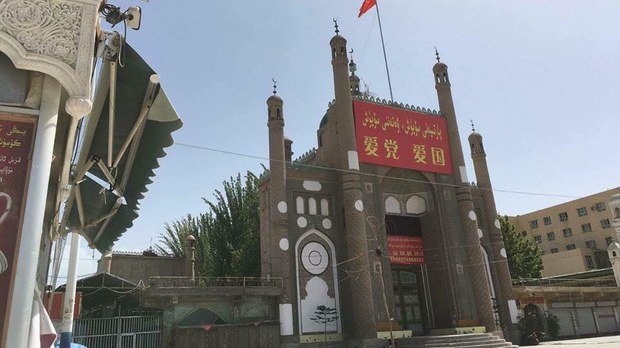A wedding in rural india/">India is stirring controversy after two brothers tied the knot with the same woman, reviving an ancient but rare practice still held by some communities in the Himalayan region.
The grooms, Pradeep and Kapil Negi, married Sunita Chauhan in a colourful three-day celebration attended by hundreds of villagers. The traditional ceremony took place on July 12 in Himachal Pradesh, a mountainous state in northern India.
Their union is rooted in the polyandrous customs of the Hatti tribe, where such marriages are permitted under local customary law, despite being illegal in the rest of India.
During the wedding, the trio circled a sacred fire, while villagers sang old folksongs passed down through generations.
“We followed the tradition publicly as we are proud of it and it was a joint decision,” said Pradeep.
His younger brother Kapil added, “We’re ensuring support, stability and love for our wife as a united family.”
Pradeep works with the Indian government, while Kapil is employed overseas. The family’s unusual arrangement has drawn both attention and anger.
Under the Hatti tradition, the wife lives with both men on a shared schedule. Children born from the marriage are raised collectively, but only the eldest brother is legally recognised as the father.
Custom vs Rights: A Growing Debate
Critics have raised concerns about the implications of such practices in modern India, especially for women.
“Such acts of women’s exploitation… go against the fundamental rights of a woman,” said Mariam Dhawale, general secretary of the All India Democratic Women’s Association (AIDWA).
Photos from the wedding, which went viral online, sparked an uproar among women’s rights advocates, many of whom argue that ancient customs must evolve to reflect changing times.
Himachal Sirmaur Wedding:हिमाचल में क्या फिर बहुपति प्रथा का हो रहा आगमना?| Kapil Negi | Pradeep Negi#Sirmaur #HimachalSirmaurWedding #KapilNegi #PradeepNegi #SunitaChauhan pic.twitter.com/mMeJdc4038
— Punjab Kesari (@punjabkesari) July 20, 2025
Yet, local leaders defend the practice.
“We have a customary law to protect polyandry,” said Harshwardhan Singh Chauhan, a legislator representing the Sirmaur district, home to nearly 300,000 Hatti tribe members.
Kundal Lal Shashtri, a community elder, also offered historical backing. “Even in the Mahabharata, Draupadi was married to five brothers,” he said, referring to one of India’s oldest epics.

This isn’t the first time the Hatti people have made headlines. The tribe, with roots in ancient Indo-Aryan lineage, has long campaigned to preserve their traditions, particularly in the face of mainstream laws that do not always recognise their ways.
A Practice at the Crossroads
India is a country of diverse laws, customs, and communities. While tribal traditions like this exist in isolation, they are increasingly scrutinised under the national and international spotlight.
Despite criticism, many locals insist the arrangement benefits the family unit and prevents land fragmentation in hilly regions where farmland is scarce.
Still, voices like AIDWA’s believe the focus should shift toward safeguarding women’s autonomy and dignity, even in tribal zones.
Rate, Like 👍, Comment💬, share this article, Follow us on our social media handles, and Submit your own story to get featured and earn rewards!








